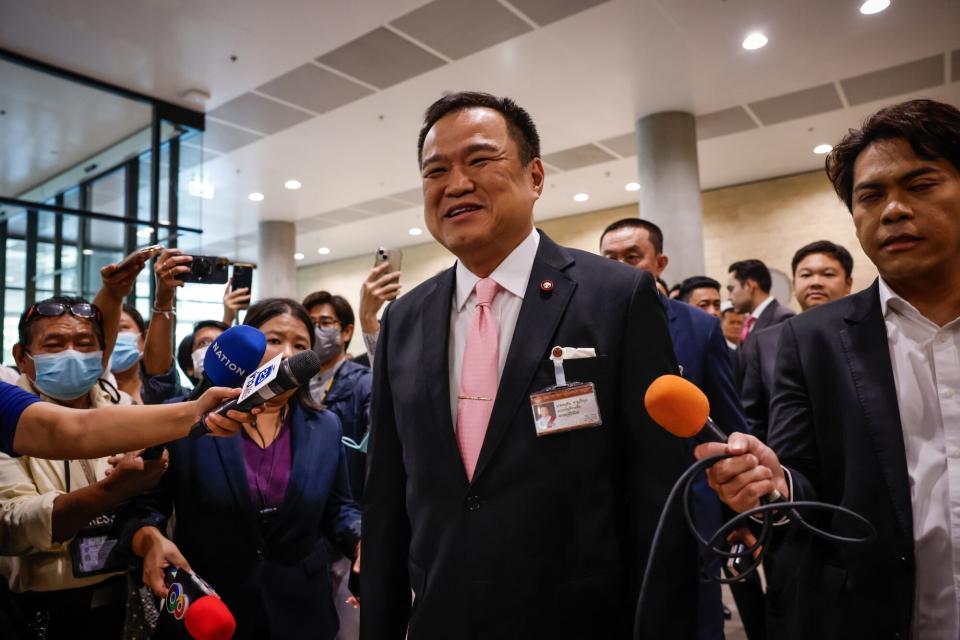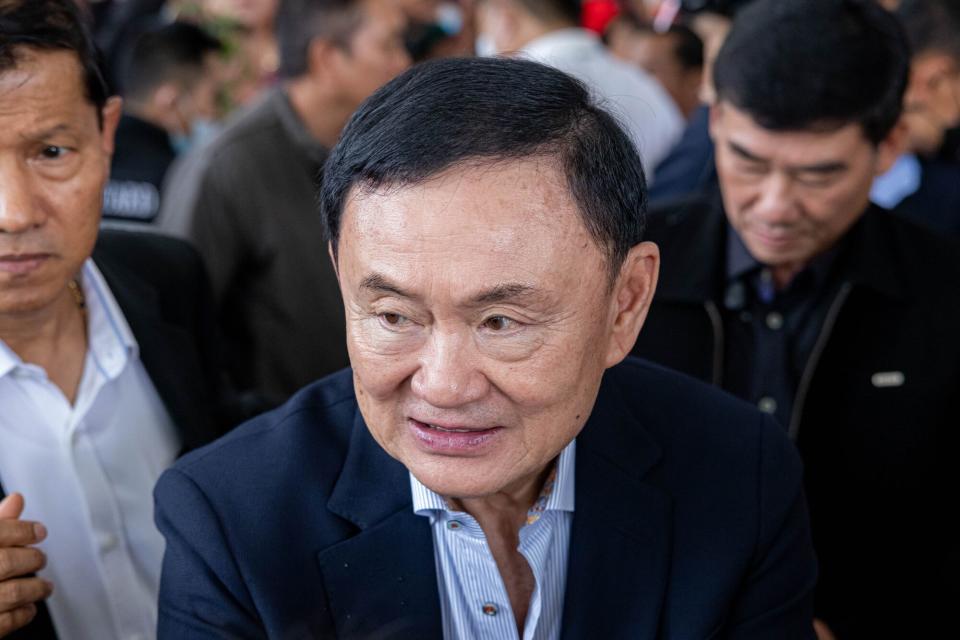Thai Conservatives Retain Senate Control in Blow to Pro-Democracy Groups
(Bloomberg) -- Thailand certified the results of the first Senate contest since a coup in 2014, with lawmakers linked to a conservative party emerging as the biggest group and those backed by Prime Minister Srettha Thavisin’s party trailing behind.
Most Read from Bloomberg
Saudis Warned G-7 Over Russia Seizures With Debt Sale Threat
Stock Rotation Hits Megacaps on Bets Fed Will Cut: Markets Wrap
Tesla Delays Robotaxi Event in Blow to Musk’s Autonomy Drive
Saudi Prince’s Trillion-Dollar Makeover Faces Funding Cutbacks
The official results, published late on Wednesday, show more than half of the new 200 senators have links with Bhumjaithai, a party that was part of Thailand’s last military-backed government, and its leader Anutin Charnivirakul, according to observations by four political analysts. Only a dozen candidates with ties to the ruling Pheu Thai Party were confirmed.
The rest were either affiliated with pro-military conservative parties or pro-democracy groups, according to the political commentators.
“It’s a big win for Bhumjaithai, which is trying to prove itself as the new champion for the conservative establishment,” said Stithorn Thananithichot, Director of the Office of Innovation for Democracy at King Prajadhipok’s Institute in Bangkok.
The Senate race wasn’t a normal democratic election open to all voters. Under the military-backed constitution, the general public had no role in picking the senators.
To vote, people had to apply to seek a senate seat from one of 20 civil and professional categories, ranging from farmers to lawyers, women and ethnic minorities. There were 46,000 applicants, less than 1% of the population.
Applicants are barred from holding titles in political parties or being members, making it difficult to definitively say who won. Anutin himself claimed no victory and denied Bhumjaithai’s involvement with the Senate contest.
“I don’t even know how the Senate election worked,” Anutin told reporters when asked about winners seen as being linked to him or his party. “Bhumjaithai wasn’t involved at all.”
Analysts say conservative groups will continue to keep a tight grip on the institution, whose outgoing members from 2019 were appointed by the military. While it no longer plays a key role in who becomes prime minister, the senate retains the power to allow amendments to the military-backed charter and make appointments to posts in the Constitutional Court, the anti-graft agency and the Election Commission.
The results may also shift the balance of power in the coalition government headed by Pheu Thai. As Srettha faces disqualification in a court case over an alleged ethical violation, Anutin — a former construction tycoon — could well become one of the leading contenders to replace him should the top job fall vacant.
The 57-year-old politician, known for championing Thailand’s cannabis decriminalization two years ago, has played a kingmaker role in the past. Bhumjaithai has been crucial to the formation of coalition governments since the coup in 2014.
The results represent a reversal of fortunes for Pheu Thai, which came together with a clutch of royalist and pro-military parties including Bhumjaithai to take power and prevent a reformist party from forming a government last year. The deal had allowed former prime minister and de facto Pheu Thai leader, Thaksin Shinawatra, to return to Thailand after a 15-year exile.
Now Thaksin faces trial in a royal insult case for comments made in 2015 and — in another sign the tides are turning — Thaksin’s brother-in-law and former premier, Somchai Wongsawat, lost out on a Senate seat this time.
“Bhumjaithai’s success in the Senate race shows the establishment that Anutin, who is deemed more trustworthy than Thaksin, is worthy of throwing their support behind, especially if Srettha trips up,” Stithorn said.
The Senate plays a crucial role in the current plans by the government as well as the opposition to amend the military-backed constitution, which requires support from at least a third of the upper house. Nearly all attempts to change the charter have failed due to insufficient Senate votes, despite the proposals clearing the lower house of parliament.
The new Senate members come from all backgrounds, including farmers, small business owners and lawyers. They’re expected to start their roles by the end of July and will have a term of five years.
(Updates with Anutin comment, context from third paragraph.)
Most Read from Bloomberg Businessweek
Ukraine Is Fighting Russia With Toy Drones and Duct-Taped Bombs
At SpaceX, Elon Musk’s Own Brand of Cancel Culture Is Thriving
©2024 Bloomberg L.P.




